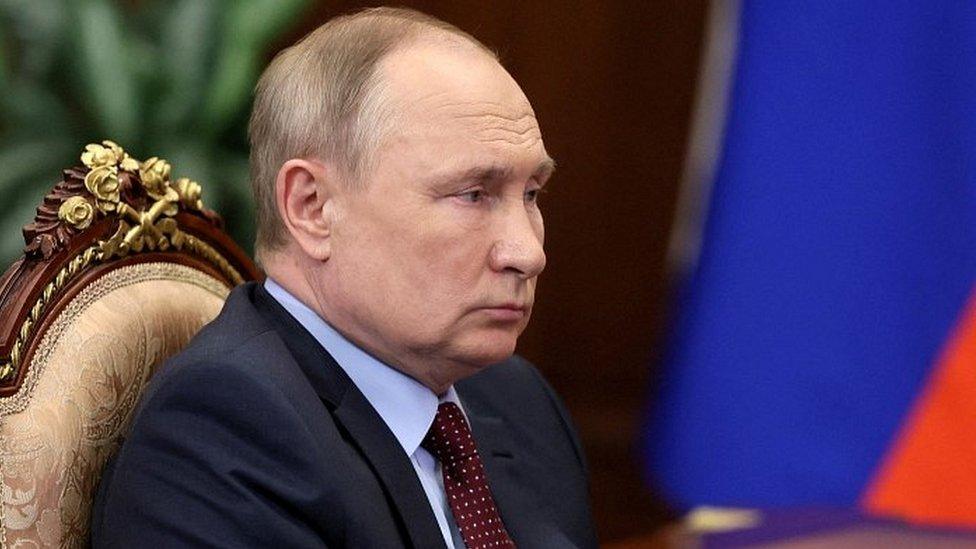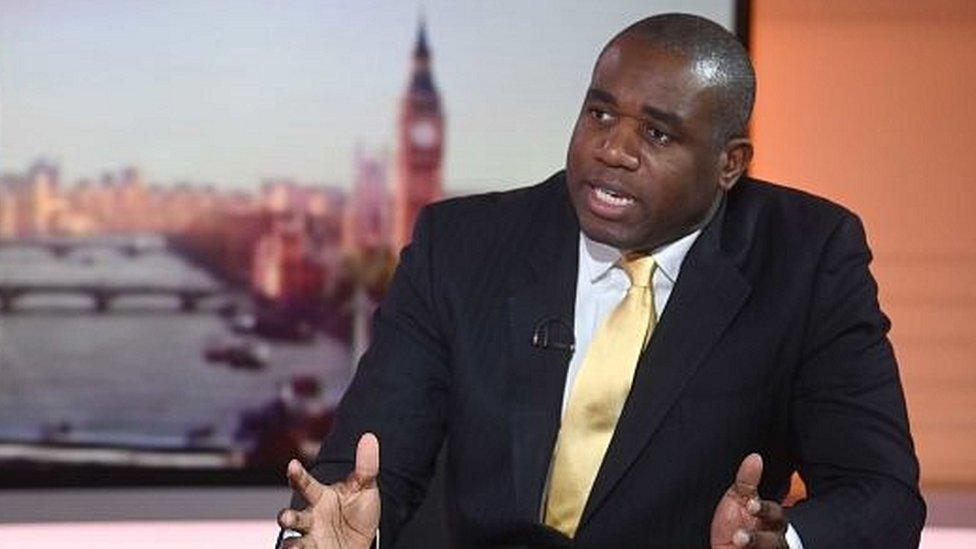Ukraine invasion: UK sanctions against some oligarchs may take weeks
- Published

UK sanctions against some individuals linked to Vladimir Putin could take weeks to put together, government sources have told the BBC.
Several Russian oligarchs have had their UK assets frozen and there is pressure on ministers to extend this punishment to more people.
But a government source said sanctions would be a rolling package that would "gradually tighten the ratchet".
Meanwhile, Labour is calling for oligarchs' UK assets to be seized.
It argues that confiscating possessions like jewellery, designer clothes, cars and property will boost the current sanctions regime.
And Conservative MP Tom Tugendhat, the chairman of the Commons Foreign Affairs Committee, said: "We should be looking immediately to seize those assets linked to those who are profiting from Putin's war machine, holding it in trust and returning it to the Russian people as soon as possible."
Since Russia invaded Ukraine last week, ministers have frozen the UK bank accounts and other assets of some wealthy Russians - including Mr Putin and some of those linked to him - plus those of some large firms.
Government insiders believe targeting banks or financial institutions will have a bigger impact than penalising individual high-profile oligarchs.
Meanwhile, the authorities in France and Germany have seized super yachts owned by Russian tycoons Igor Sechin and Alisher Usmanov.
For Labour, shadow foreign secretary David Lammy said the UK's sanctions regime against individuals must "catch up with [those of] our allies and partners", adding: "The government must get a grip on this by cutting Putin and those linked to his rogue regime out of our economic system as fast as possible."

David Lammy says the UK government has failed to keep pace with its international allies over sanctions
At Prime Minister's Questions on Wednesday, Labour leader Sir Keir Starmer said billionaire Roman Abramovich, who owns Chelsea Football Club, should face sanctions and accused Mr Johnson of being slow to target individuals who "prop up" Mr Putin's regime.
But a spokesman for Mr Abramovich, who has previously denied having close financial ties with the Russian president or the Kremlin, and who is now selling the football club, said he had done nothing sanctionable.
On Wednesday, Boris Johnson promised to publish a list of oligarchs with "ill-gotten Russian loot", but did not specify when this would happen.
The government's Economic Crime Bill will be debated in detail by MPs next week, with Labour saying it will help fast track the legislation.
Among other measures, it will force anonymous foreign owners of UK property to reveal their identities to prevent criminals hiding behind secretive shell companies.
But the measure will not come into effect for existing property owners for 18 months after it becomes law, which Labour says will give those targeted plenty of time to hide their assets.
The government has said it will shorten this "grace period" but not by how much, when MPs debate it on Monday.
But Labour says this "vague" promise is not enough, and it should be shortened to 28 days.
"We cannot give oligarchs a head start. Dirty Russian money must be taken out of the UK in days, not months," said shadow business secretary Jonathan Reynolds.